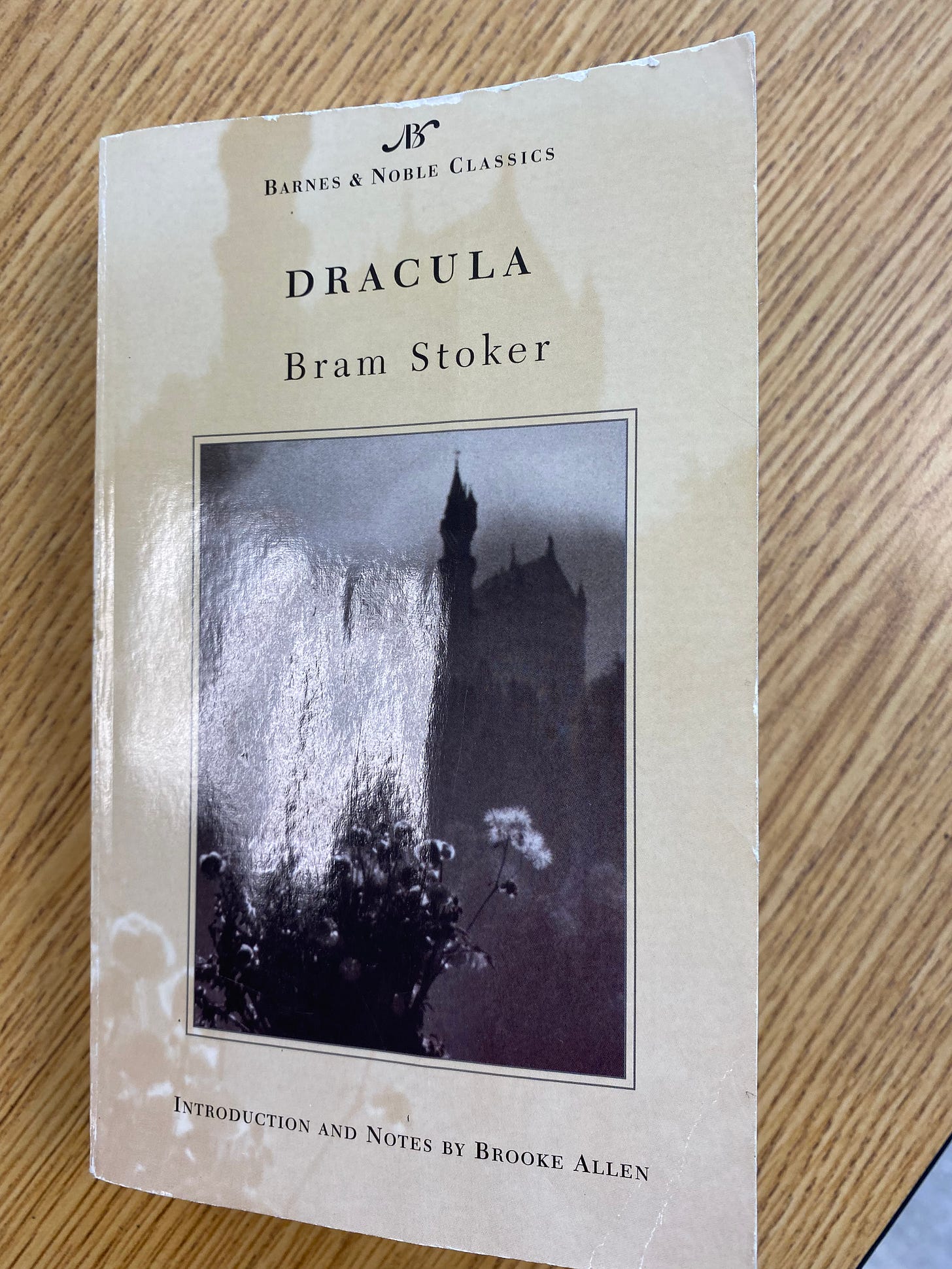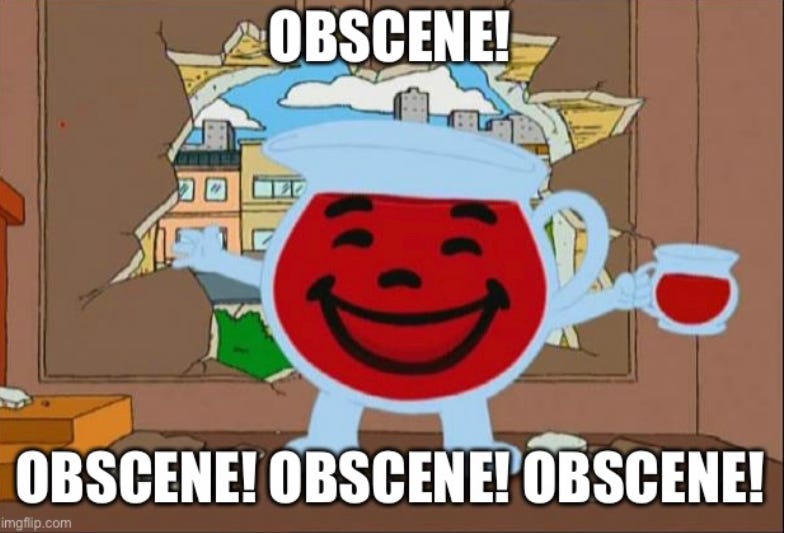HB 900 Is Unworkable
Booksellers will have to rate not only every book they've ever sold to a school, but every *edition* of every book that *might* have been sold to a school.
HB 900, the “READER Act” that could lead to the removal of thousands of books from Texas schools, was written by people who don’t know what they don’t know about books, or libraries, or literacy education, or schools in general. As a result, putting aside HB 900’s misguided intent, the bill is an unworkable mess that will wreak havoc on schools and booksellers in the state.
Here’s a quick illustration.
When classic novels or plays are reissued, they often feature an introductory essay from an academic with expertise related to the text. We’ve all seen this, right? Hamlet, with an introduction by So-and-So, Professor of Comparative Literature at Wellesley College, or whatever.
Part of what academics do is make the subtext of whatever text they’re studying visible. Another way of putting it is that they make what’s implicit in the text explicit. If a major theme of a book is masculinity and a key plot point hinges on the appearance of a phallic symbol, then an academic will note that in their discussion of the book. In other words, they’ll make the implicit sexuality of the text explicit in the introduction. But that’s a problem now, because “sexually explicit” books are banned from schools under HB 900.
An example: my first year at my current school, my supervisor went to Half Price Books before Christmas and bought each of the school’s English teachers a novel for a gift. The book she got for me was a 2004 Barnes & Noble Classics Series edition of Bram Stoker’s 1897 novel Dracula. It was a really kind gesture! I first read Dracula in 9th grade, but I didn’t have a copy of my own. I took it home, re-read it (skipping the introduction), and kept it on my personal shelves for years. Then, a few years ago, I brought it up to school to fill out a Halloween-themed book display I was setting up in my classroom. Several students expressed interest in reading it, so I’ve kept it in my classroom library ever since.
This particular edition has an introduction by Brooke Allen, literature professor at Bennington. I idly picked up the book sometime last year on my way to lunch duty, and started, for the first time, to read the introduction. Now, I’m fairly certain that Dracula itself will survive the coming HB900 blood bath. No one would call the novel sexually explicit. But Dracula is a classic example of a book that’s not explicit but also (very, very obviously) an intensely sexual text. An academic introducing the book is going to point that out, and that’s exactly what Allen does. About the scene in which the character Mina sucks blood from Dracula’s chest, Allen writes:
“No sexually experienced adult could fail to note that Dracula and Mina are mimicking the act of fellatio. The movements are explicitly sexual, and the act is described in detail. Later, when Mina looks back on the scene, the connection is made even more clear: ‘When the blood began to spurt out, he took my hands in one of his, holding them tight, and with the other seized my neck and pressed my mouth to the wound, so that must either suffocate or swallow some of the—Oh my God! My God! What have I done?’ (p. 340). The placement of the dash, the moment at which Mina breaks off her sentence, simply cannot be accidental. Some of the what?”
Allen also points out that sexuality abounds other parts of the text, like when Arthur and Lucy “enact a terrible parody of the sex act, ending in the ‘little death’ of orgasm.” Allen’s observations are a) completely accurate, b) normal observations for a college professor, well within the bounds of a college seminar, and c) sexually explicit, especially paired with quoted excerpts from the book.
What do we do with that? Does the book’s introduction—which most normal folks will never read—make the novel “sexually explicit” and therefore illegal to shelve in a high school library or classroom? The way I read the law, it does. This means that book-raters will have to consider not only every novel, play, memoir they’ve ever sold to any school, but every edition of every novel, play, and memoir, including any introductory essays, explanatory notes, etc.
On top of all that, if we say this version of the book is sexually explicit, who’s responsible for its presence in my classroom? According to HB 900, it’s the vendor who sold me (or in this case my colleague) the book. But Half Price Books has no idea the book is in my classroom. How would they know that? Nonetheless, legally, rating the book and recalling it if necessary is their responsibility. If Jared Patterson bursts into my classroom like a semi-literate Kool-Aid Man, pulls Dracula off my shelf, and decides it’s sexually explicit, then Half Price Books can never sell a book to another Texas school.
Sorry Half Price Books!
Anyway, this is just one more reason HB 900 is an awful law that, if allowed to go into effect, will have dramatic consequences for many, many people who care about reading and literacy in Texas. I’ve written before about what it could do to the teaching of high school literature; its impact on booksellers would be just as drastic. A preliminary hearing to stop the bill was held yesterday; another hearing will take place on August 28th. The plaintiffs, who include Austin’s BookPeople (where a big chunk of my classroom library came from) and Houston’s Blue Willow Bookshop, have argued the law is unconstitutional, overly vague, and would place an undue burden on booksellers. The state’s lawyers, on the other hand, are arguing those booksellers are just trying to “justify their refusal to comply with READER.”
Keep your fingers crossed for the plaintiffs.





Plano ISD has not allowed any new library books to be ordered in the 23/24 school year. HB 900 seems to be the excuse. However, other school districts are ordering books. Clamoring for new releases in book series they’ve enjoyed, Plano ISD students are being denied. Hundreds of thousands of dollars earmarked for library books sit unused. Will these resources be lost?
In an attempt at explanation, the district stated it “will need to make significant changes to our policies and processes related to library materials,” to ensure they “incorporate the new TSLAC standards” which are part of HB 900. This account seems suspect, however, as the new TSLAC standards include no guidelines that the district didn’t already follow.
It is conceivable that the hiatus is an excuse to limit librarians’ ability to purchase titles the district might deem controversial, while it devises a more restrictive selection policy that capitulates to non-resident speakers at recent school board meetings.
Plano students are not being served, and it seems likely no ordering will take place for the foreseeable future.
I haven't kept up as well as you, but why aren't the publishers supposed to be doling out the ratings and the booksellers are taking the fall here?
All of the handwringing over books is disturbing and I hope we can vote some of these people out of office soon.